Go Books: Your Guide to Choosing the Right Read
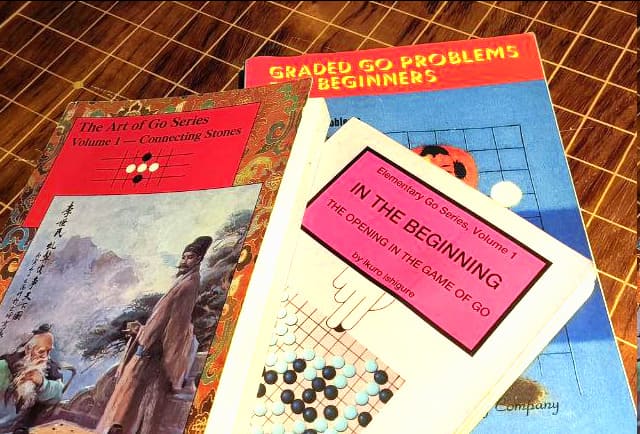

Welcome to the cozy, magical book club!
If you don’t want to end up like I did and make your wallet cry by buying 200 Go books, heed some advice all ye who enter here. I do not think it is necessary to buy Go books these days, especially considering Go Magic’s free introduction Courses, which honestly I consider the best introduction to the game of Go we currently have (I pinky-swear that I was not paid to say that).
My name is Marco and I am currently a player at EGF 1-2 Dan strength. I have been learning and teaching Go for 8 years locally in schools, club sessions and reviews/mentorship and hope to give some advice for others learning this beautiful game. You can contact me via [email protected] for further book suggestions or comments.
Full overview: all our book guides in one place
This article will help you pick the right book for your level. For more specific recommendations, here are links to our specialized guides by rank.
- Go Books: Absolute Beginner Guide (30k)
- Go Books: Going Wide (20 kyu – 11 kyu)
- Go Books: Going Deep (10k-4k)
- Go Books: Road to Dan Guide (3k – 1d)
Why Should You Care About Some Dusty and Old Pages?
- Everyone learns differently. While videos are fantastic, we know that some people learn better if they take their time with a board in front of them.
- Everyone teaches differently. Different instructions/teaching types resonate differently with people. Try what suits you best, there is no other way of knowing.
- Repetition and varied approaches make learnings stick better.
- There is a lot more wisdom hidden in all Go books, compared to the content that is available to us in videos or on digital platforms.
- Portability. You can take the books anywhere, and it’s easier to read a book on the beach than trying to follow a video on a glaring screen in the sun.
- You want to guilt-trip someone into finally learning the game with a lovingly packaged beginner book present for their very merry unbirthday.
As you can see, books aren’t quite outdated just yet, but before we get into the impressions, I feel like we should start at the very beginning, and as such:
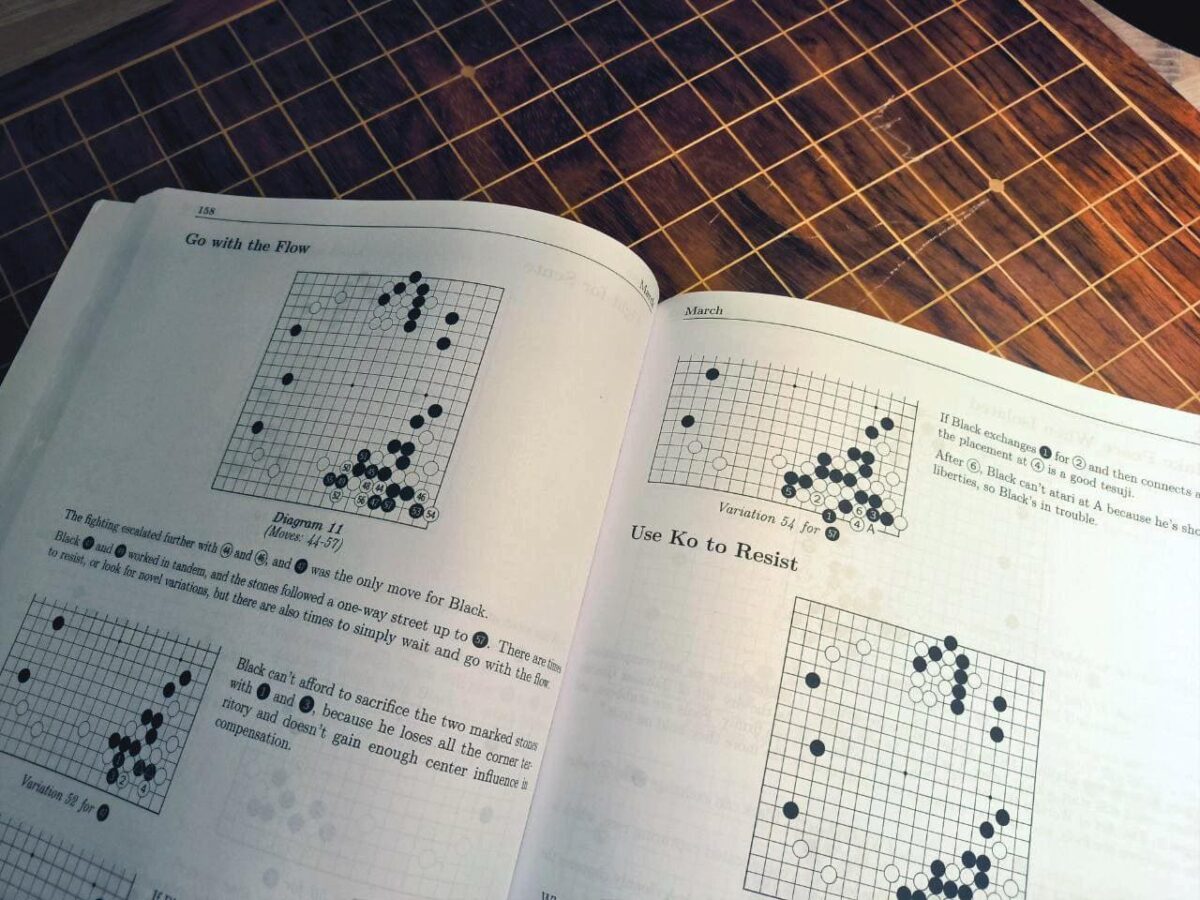
How to Read a Go Book?
If you never read a game guide/instruction book, getting the most out of your reading experience is a bit different than for “normal” books.
- As with everything in Go, try to engage with a Go book the way that feels most enjoyable to you, whatever that might be. I promise I won’t tell anyone if you enjoy reading all the words backwards.
- If you have time to study the game, put a board beside you to place the stones and shapes on the board. It helps a lot for your visual recognition skills if you practice everything on the board. Alternatively, use a phone or browser to practice the moves.
- It is a bit different for the absolute beginner books, as they have a very deliberate structure, but in general: If a certain topic seems a bit too advanced/detailed for you, feel free to skip them for now. Learning Go is learning about a million different topics, which everyone learns at a different pace. You might enjoy/understand certain topics easier than others and it’s perfectly fine to learn what feels most suitable to you right now.
- You will inevitably stumble over people telling you that old Go books are outdated because of AI. There is no need to worry about that, especially in the beginning. Even older Go books still have plenty of value. Often Go books might not be “perfect” according to AI, but their concepts are still sound and were taught and applied by grandmasters of the game.

All of this finally out of the way, let’s talk about some actual Go books! Go books are very varied in topic, theme and approach and it’s worth branching out and learning from different sources. I noticed in my own Go journey, that I needed to branch out into different directions based on my rank and skill level, so I will suggest some different ideas for the skill level you might be at and I am sure you can find the inspiration you might need to take the next step.
Beginner books all focus on similar aspects, so I will focus on distinct beginner books that might be differently suited based on your own preferences.
Reading and comparing different Go books takes a long time. This article series is also a motivation for me to finish some books I have long been meaning to get to and structure the suggestions in a way that complements each other well or inform the Go Magic community about well-suited additional learning material.
I am always on the lookout for new books that fit these categories. Which books did you find most helpful? Which books do you consider must reads? Any suggestions might just make it in any follow-up articles!
If you enjoy these articles or you have some feedback for me, please do feel free to comment on the article below!
Have fun reading!
Here’s a curated list of books we recommend for absolute beginners to learn Go:
| Title | Author | Purchase/Download |
|---|---|---|
| Learn to Play Go: A Master’s Guide to the Ultimate Game (Volume I) (2010) | Janice Kim and Jeong Soo-hyun | Amazon |
| Go: A Complete Introduction to the Game (2023) | Cho Chikun | Amazon |
| Go for Beginners (1973) | Kaoru Iwamoto | Amazon |
| The Way to Go (2008) | Karl Baker | Download |
| A Go Guide for Beginners (2021) | Charalampos Kapolos | Download |
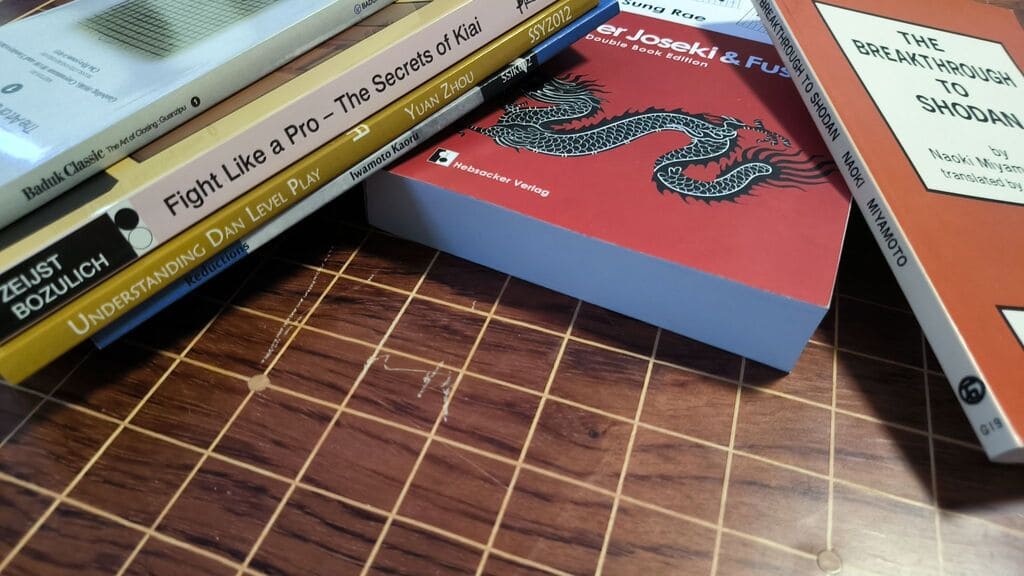
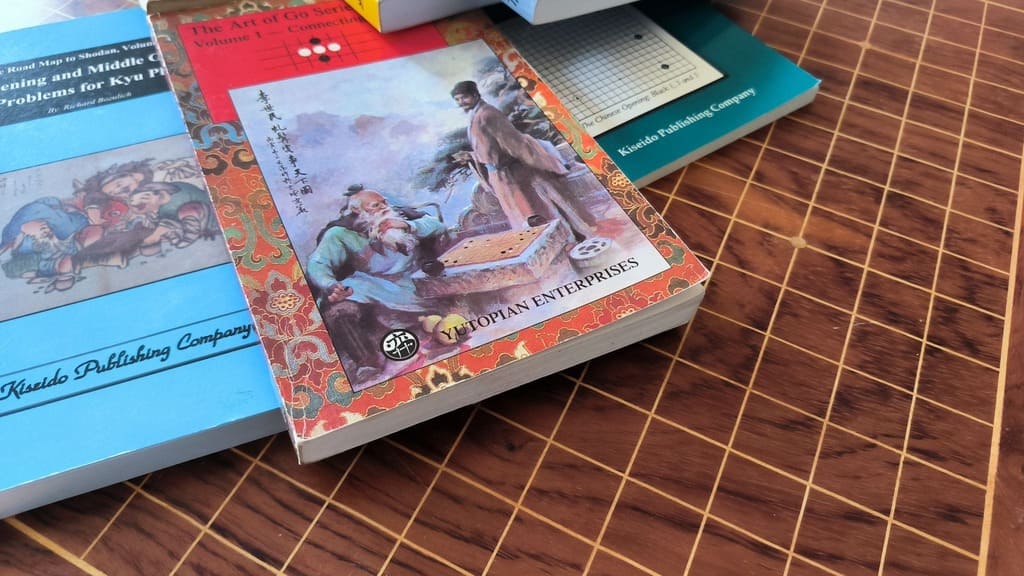
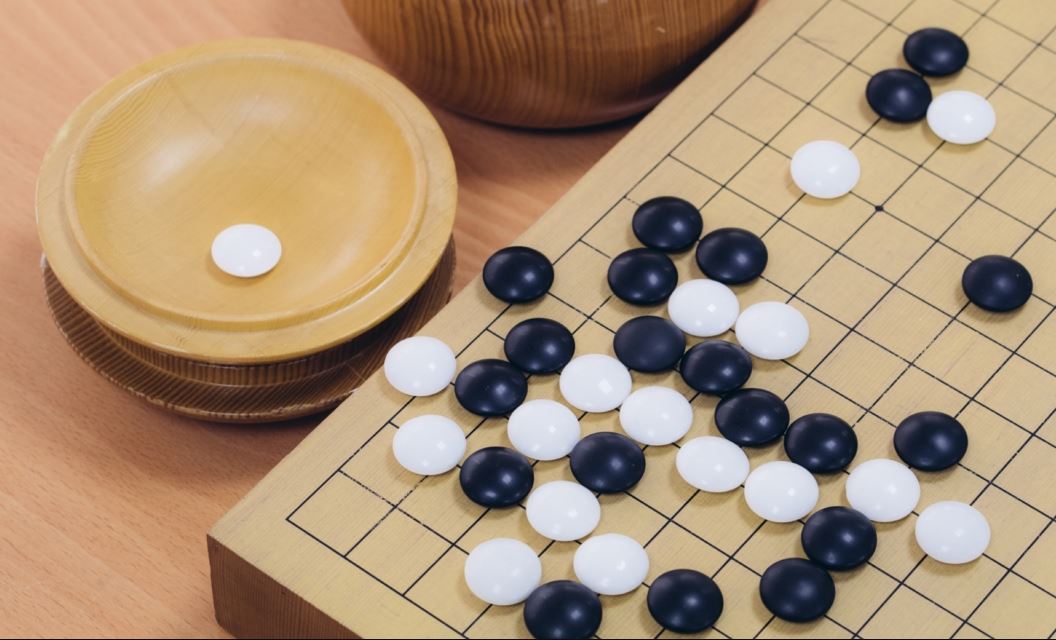
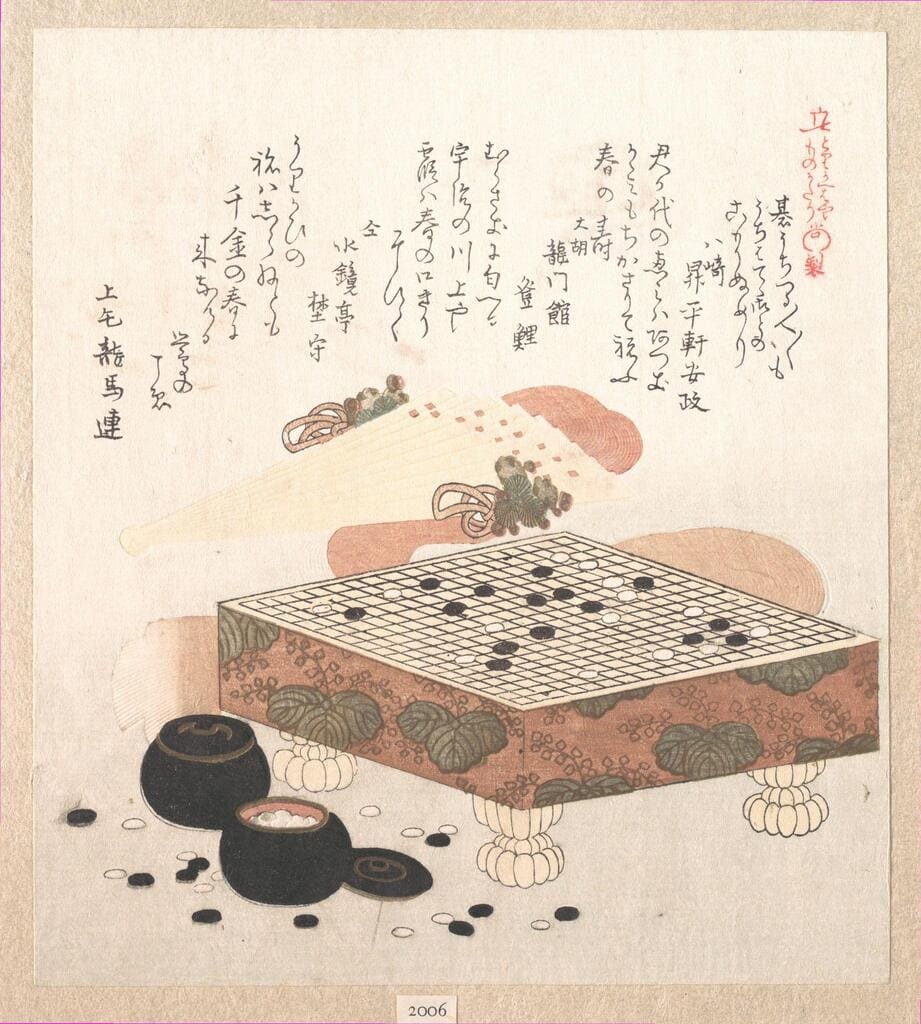

Оставить комментарий